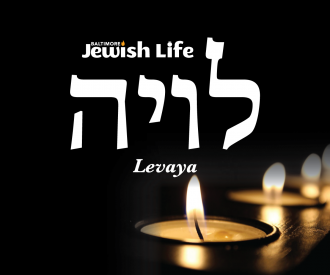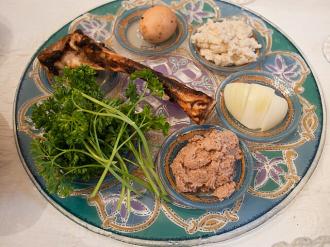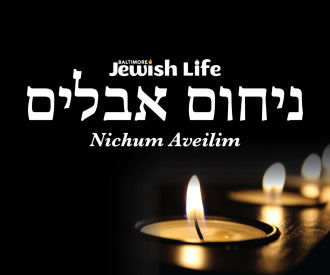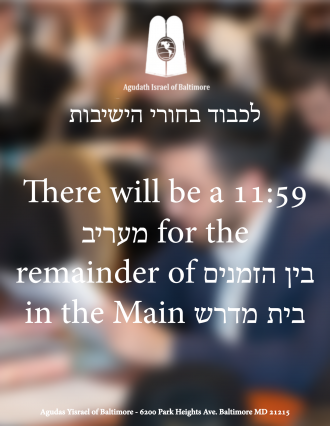At the conclusion of last week’s parshah, Bila’am recommended to Balak a last resort to harm the Jewish nation: entice them to sin with the Midianite women (Sanhedrin 106a). His ruse worked, and 24,000 people perished as a result. At the episode’s climax, Zimri, a tribal leader, brazenly performed his sin openly in front of Moshe Rabbeinu and all of the elders. Pinchus saw that things had gone too far, and in accordance with a specific halacha which warranted it (kenoim pogim bo), executed Zimri. This ended the plague that had consumed so many Jewish lives and saved the many others that would have perished.
At the beginning of this week’s parshah, Hashem rewards Pinchus with an incredible gift: eternal priesthood as a Kohen (until this point he was not a Kohen; See Rashi) and His covenant of peace. On the surface, it seems that it was solely the courageous and zealous act of killing Zimri which earned Pinchus these incredible blessings. However, the Torah additionally states that the reason was due to the fact that: “Pinchus, the son of Elazar, the son of Aharon the kohen turned back My wrath from upon the Children of Israel, when he zealously avenged my vengeance among them… (25:11).
Why did Hashem have to state the lineage of Pinchus, in addition to stating Pinchus’ virtuous act?
Rashi explains that after Pinchus killed Zimri, which put an end to the devastating plague that had killed over 24,000 people and rescued so many thousands more of the Jewish nation, the Jewish people were far from gracious. Instead of applauding him, they had the audacity to mock him and protested “how could the grandson of someone (Yisro) who had fattened calves to be sacrificed to idols, dare to kill a tribal leader!?!”. This is why Hashem traced his lineage to Aharon, for Hashem was attesting that Pinchus’ actions stemmed not from hate, but rather from his love of the Jewish nation, a trait which he had inherited from Aharon Ha’kohen.
Rashi’s explanation ends there. However, while this episode that Rashi mentions is certainly important, it only half answers our question. Why did Hashem specifically include this episode in the very same verse that discusses Pinchus slaying Zimri?
It seems from Rashi that this episode of the Jewish nation taunting Pinchus, who remained calm and did not respond to them, was just as much of a factor in Pinchus’ greatness and the reward that he deserved, as his zealous act of killing Zimri. For this proved that Pinchus was not a hot-tempered individual who relished the opportunity to slay a human being who had sinned. Rather, arguably even more importantly, Pinchus was a man who demonstrated even greater strength, by remaining silent in the face of vicious taunts by the very ingrates that he had just saved. This ability to remain calm and not answer others back, despite the fact that he was clearly right and they were clearly wrong, was a primary factor in proving his greatness and worthiness to receive his incredible rewards. To illustrate this, Hashem included his lineage in the very verse that discussed his heroic act. We see from here just how greatly Hashem loves one who keeps his calm and remains silent in the face of adversity.
This begs the question: how can WE ever hope to follow Pinchus’ example? How can we remain calm in the face of mockery, even when we are clearly in the right and the subject is being entirely ungrateful? For example, how can one keep calm if his child, or anyone else that he gives so much to, seems to act disrespectfully towards him?
A poor Chosson (Groom) from Israel came to America to collect money for his wedding. He knocked on one door and the owner of the house came out and started yelling at him profusely. During the hurl of insults asking why he didn't just get a job and support himself, and onslaught of humiliation, the boy just stood there, calm and cool, as if he were listening to a lecture from a great Rabbi. At the end of the tirade, the homeowner took out $300 and handed it to the boy. The Chosson thanked him and was about to leave. Just then, the man asked him, "How were you able to just stand there like that, taking in all of my insults without responding?”. The Chosson took out a little notebook, which contained the names of the people from whom he was going to collect. There was a short comment next to each name. The Chosson told him, "By your name, it says that he yells and insults a lot, but if you remain calm and hold your tongue, he will give you $300. So I was fine with the insults, because I knew I would get my money afterward." (Story related by R’ Biderman)
If a person is prepared with the proper outlook, he can handle anything. We must take to heart that Hashem wants us to forgive every Jew and love them. He is always in control and is the One orchestrating each test of our patience. If we remain calm even when it is challenging to do so, we would successfully uproot all hatred from our hearts, perfect our eternal character, gain precious peace of mind, and earn Hashem’s greatest blessings. If we internalize this, then eventually, even the most difficult of circumstances will not phase us.
Perhaps this was Pinchus’ secret; he had the proper outlook. At this stage of his life, he had already internalized how greatly Hashem values peace and the great perfection it accomplishes. This awareness is what helped him succeed. Similarly, we can all personal use this method as well. By Hashem revealing to us how greatly he rewarded Pinchus for remaining silent in the face of insult, it teaches us that focusing on the reward could be a useful method in acquiring this praiseworthy character trait for ourselves. In fact, Pinchus’ rewards were even more eternal than just priesthood and peace. The Sages explain that Pinchus’ act was so loved by Hashem, that He granted Pinchus eternal life and the honor of being someone who would serve Hashem on special missions on this world forever. That’s right - the Yalkut Shimoni explains that Pinchus was granted immortality and is none other than Eliyahu Ha’Navi! (See Rashi B"M 114b)
Living Inspired
The great reward for remaining silent is found throughout the Torah. In addition to the rewards granted to Pinchus, the Gemara states that if one is publicly humiliated and remains silent, he becomes beloved by Hashem to one of the highest degrees imaginable (Gittin 36b). R’ Chaim Kanievsky, based on this Gemara, is known to direct those who need a true miracle to ask such a person for a blessing, for all of this person’s prayers will be answered (if what they ask for is truly good). Furthermore, the Gemara states that the entire world is sustained in the merit of one who remains silent in the face of confrontation (Chulin 89a). The ability to hold one’s tongue is from the greatest character traits of royalty that each Jew should strive for. By Hashem openly telling us of the mind-blowing rewards that this earns, He is hinting to us that a good method to help you begin to achieve this praiseworthy character trait, is by focusing on its reward.
One cannot expect to be able to control himself overnight. Rather, by remaining calm and silent in the face of small taunts and challenges, when one is allowed to and can easily answer back, they will develop the strength to remain silent in the face of even more difficult ones and be awarded the greatest rewards that one can fathom. May we all merit to master this life skill, one day and one test at a time.
















